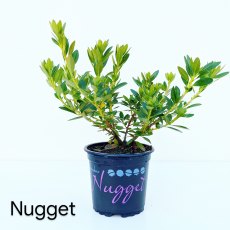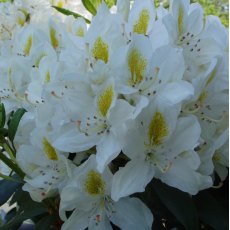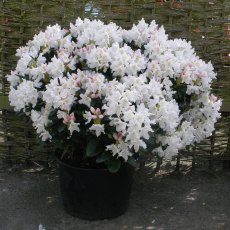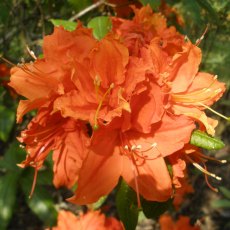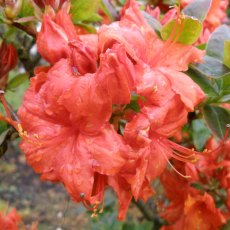Acer palmatum dissectum 'Viridis'
Item: JVIRID
 Currently Unavailable
Currently Unavailable
100-125cm
Not Scented
Yes
To -20 °C
Collect in Store
This item is available for collection.
Home Delivery
UK mainland delivery from £8.95
Bright green foliage holds its colour well all summer, although it can burn in hot sun or wind. Orange and red autumn colours. Forms a dome shaped plant with a strongly cascading habit. Height of 100cm in 10 years.
Customer Reviews


Good to know
Acers
Acers, or Japanese Maples, make excellent companion plants for rhododendrons. The taller growing varieties offer light dappled shade above rhododendrons, whilst the smaller growing maples provide a strong foliage contrast, especially when seen in a low umbrella habit. All acers have lovely new foliage in the spring and most have fantastic autumn colour. Acers can grow in a quite random fashion which can be attractive, but staking and tying is recommended to train new shoots vertically. Spectacular effects can be gained by training the classic mushroom shape at different heights. This requires staking vertically from a young age to form the stem height you require before starting the cascade. Light pruning and shaping of new shoots is best done in June, but larger pruning is best done while the plant is dormant in January and February.
All require good moist soil with a high organic content and are best planted with ericaceous compost to aid establishment. For a guide to plant spacing, use the height we give in 10 years as a guide to the distance between each plant. Plant no deeper than the top of the root ball, and dig in plenty of good ericaceous compost around the sides. A teaspoon of slow release feed is sufficient for a 3 litre plant, rising to a small handful for a mature plant. Acers are suitable for growing in pots and containers, use a pot no more than twice the size of the pot the plant is bought in, do not over-pot. Make sure the pot has good drainage holes and stand the pot on feet or tiles to allow free drainage through the bottom of the pot; re-pot every 3 years for best performance.
Please note: The dissectum (cut-leaf) cultivars are less tolerant to wind and require a more sheltered position, to prevent wind-burnt foliage. Some die-back on small shoots can be expected after cold winters, and these should be pruned off in spring.
Size Guide
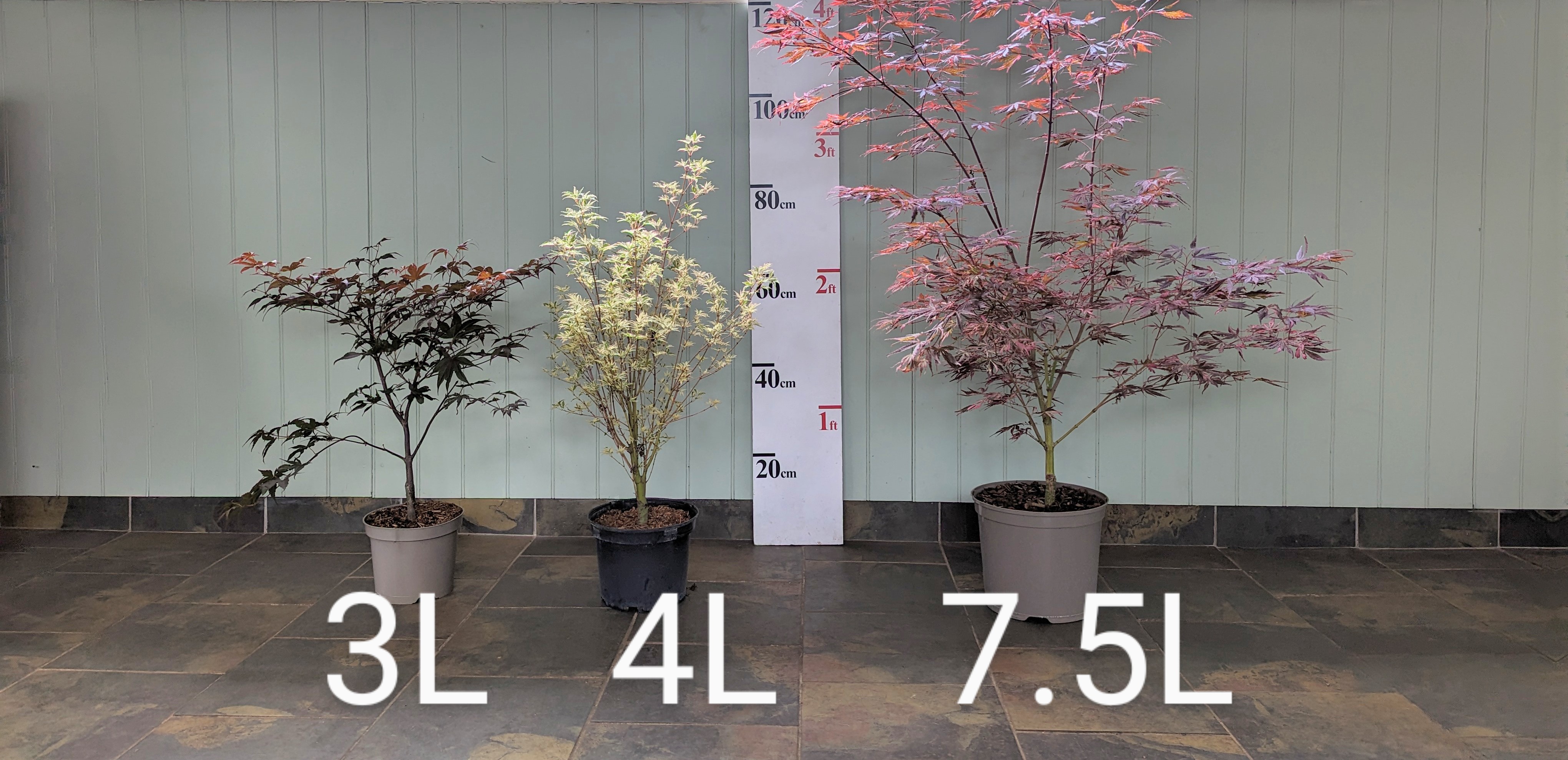
The Basics
Ideal soil
Acidic soil, good organic content, pH 4.5-6.0. Inkarho range of rhododendrons will tolerate soils up to pH7.5
Sun or Shade
Light dappled shade is best for most varieties.
Shelter
Refer to hardiness rating. Give young plants protection.
Site Selection
Avoid close to trees, roots, invasive weeds, walls, hot patios, dry banks and waterlogged soils. Do not use weed matting or stone mulch.
Plant spacing
Use the height shown in 10 years as a guide to the distance between each plant. Allow room for plant to fill out. If planting closer for instant impact, be prepared to move plants after a few years.
Compost
- 3 litre pot, dig in 10-20 litres of ericaceous compost.
- 7.5 litre pot, dig in 20-30 litres of ericaceous compost.
- 70-80cm specimen, dig in 60 litres of ericaceous compost.
- 100-120cm specimen, dig in 120 litres of ericaceous compost.
Planting depth
Plant high in the ground, with the top of the rootball visible.
Feeding
Slow-release ericaceous feed recommended in March and straight after flowering.
Mulch
Recommended every few years.
Water
The key ingredient! Keep moist all season, especially the critical time at end of June for flower bud initiation. Tap water is better than no water. Heavy dose at least once per week in dry weather.
Drainage
Ensure good drainage in winter, especially with yellow flowering varieties. Avoid waterlogged sites.
Pruning
Rhododendrons and Camellias: Not normally required. Tidy wayward shoots after flowering.
Evergreen azaleas and Bloombux can be clipped into a low hedge.
Magnolias and Acers: Formative pruning when young to shape into a tree or bush.
Deadheading
Remove old flower-heads, particularly on young or weak plants.
For further advice see here
Delivery & Returns
Our website calculates the delivery charge according to weight and delivery location throughout the UK. To see these charges, please enter your postcode at the checkout, and you will see the charge vary as you add more items to your wheelbarrow.
 Millais Nurseries
Millais Nurseries



